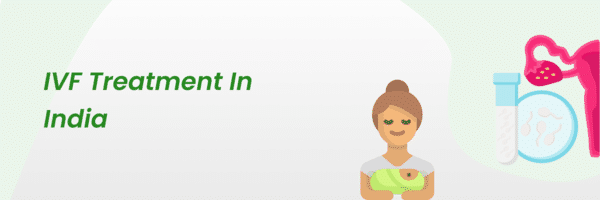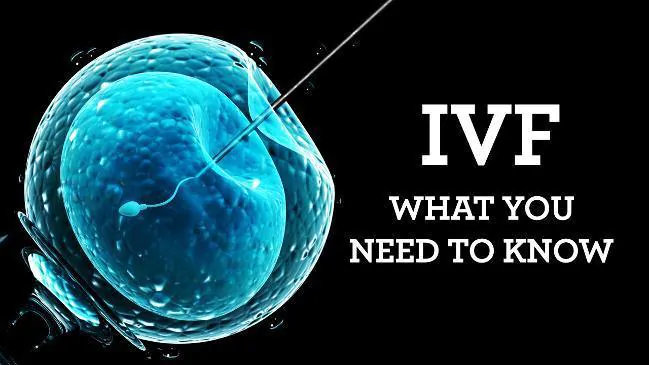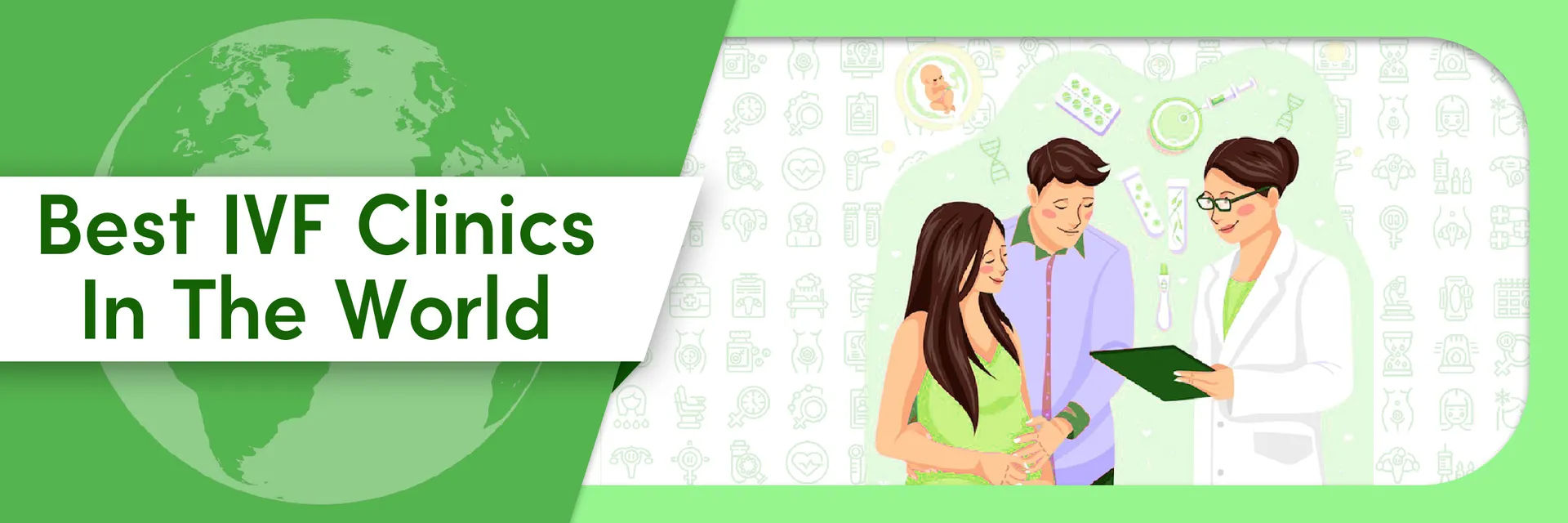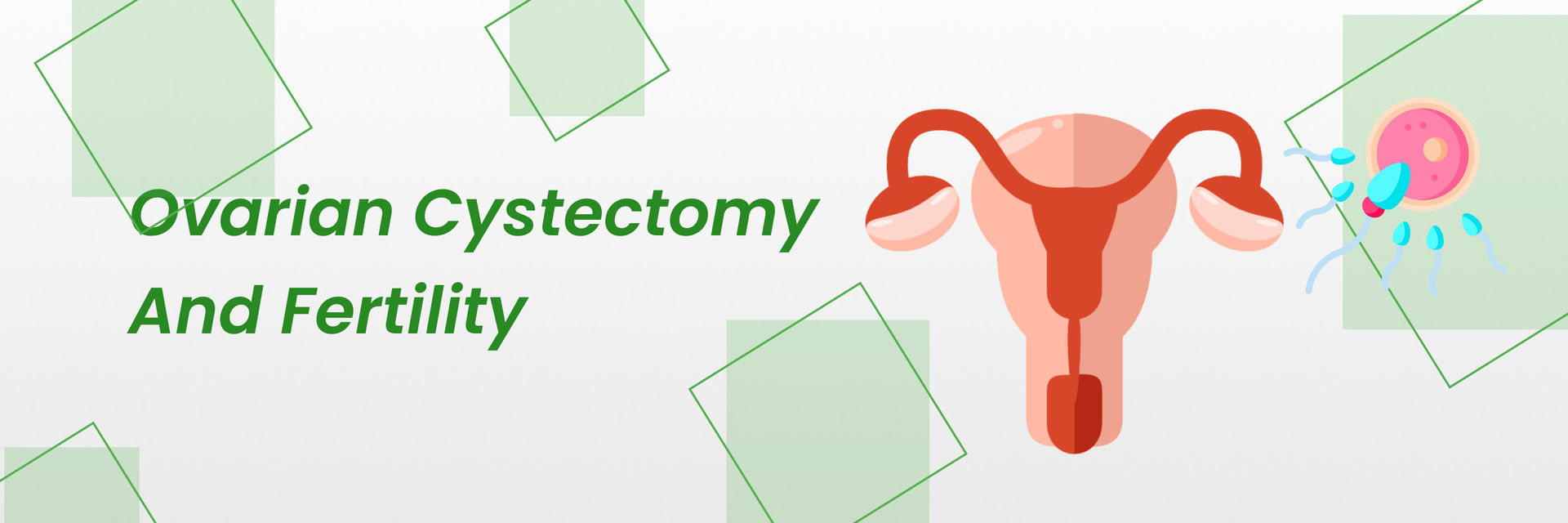Overview
In today's world, more and more people face challenges when starting a family. According to WHO, 17.5% of the adult population experiences infertility issues. But don't worry; science is here to help! Hospitals are using advanced technology like IVF alongside AI. This combination greatly enhances the prospects for couples who want to become parents. Imagine using highly sophisticated computers in a hospital setting to ensure the best possible outcomes. Did you know that millions of couples worldwide are confronting this challenge? It's a significant issue, and we're about to explore how AI and IVF are collaboratively making strides in addressing it.
Did you know that AI in IVF significantly enhances embryo selection, potentially increasing pregnancy success rates by up to 30%?
Didn't believe it right?
Let's explore how AI and IVF can offer hope for overcoming infertility challenges.
What is AI's role in enhancing IVF success rates?

Artificial Intelligence plays a big part in making IVF treatments more successful. Let's look at how it's doing this.
Choosing the Best Embryos with AI: In IVF, picking the right embryo is key. AI helps by closely examining embryos and finding the best ones. This method is more accurate than traditional ways.
- AI in Genetic Testing: AI speeds up genetic testing in IVF. It quickly finds the healthiest embryos, lowering the risk of genetic problems.
- Customized IVF Plans with AI: Everyone's IVF needs are different. AI looks at your medical history and past IVF attempts to create the best plan for you.
- Predicting IVF Results with AI: AI can guess how likely IVF will work for you. It looks at things like your age and health to make these predictions. This helps doctors and patients make better decisions.
- AI Helps Clinics Run Better: AI doesn't just help with the medical side. It also makes IVF clinics run more smoothly. This means better scheduling and care for patients.
- AI in IVF Research: AI is also used to find new ways to improve IVF. It looks at lots of data to find better methods and treatments.
Why Is This Important?
AI makes IVF more precise and personalized. It gives people a better chance of having a baby.
If you're thinking about IVF, understanding how AI helps can be useful. Feel free to contact us for more information. schedule your appointment now.
AI is making a big difference in IVF, offering hope and better chances of success.
How does AI assist in identifying viable embryos during the IVF process?

AI helps find healthy embryos during IVF using advanced imaging and machine learning.
Here's a breakdown of how it works:
- Taking Pictures: AI uses special cameras to take clear pictures of the embryos.
- Looking at Details: It then checks these pictures for size, shape, and how the cells look. These details tell if an embryo is healthy.
- Learning from Past Results: AI has learned from many previous IVF tries. It knows which patterns in the embryos usually lead to a baby's development.
- Making Predictions: AI can guess which embryos can succeed in a new IVF cycle using what it's learned.
AI assists doctors in selecting embryos with the highest potential for a successful pregnancy.
Ever wondered how AI can pick the best embryos for IVF? Let's uncover the magic behind this smart technology!
What are the benefits of using AI algorithms for embryo selection?

Using AI algorithms for embryo selection in IVF has several benefits:
- More Accurate Selection: AI can see details in embryos that the human eye might miss. This means it can pick the healthiest embryos more accurately.
- Higher Success Rates: Because AI chooses better embryos, there's a bigger chance of pregnancy and a successful birth.
- Faster Decisions: AI can analyze many embryos quickly, saving time in the selection process.
- Less Bias: AI makes decisions based on data, so it's less likely to be influenced by human biases.
- Learning from Data: AI improves over time as it learns from more IVF cycles. This means its choices keep improving.
- Personalized Treatment: AI can determine your situation and make the best choices.
In short, AI makes embryo selection more precise, quick, and tailored to each person. It can help increase the chances of a successful IVF treatment.
Discover the benefits of AI algorithms for embryo selection. Your well-being is our priority – call us today to book your appointment and discuss personalized options.
How does AI optimize the timing of embryo transfer in IVF procedures?

AI improves the timing of embryo transfer in IVF. It analyses large datasets and identifies patterns that may not be apparent to humans. Here's a simplified explanation:
- Analyzing Past Data: AI looks at information from many previous IVF treatments. This includes when embryos were transferred and how successful those transfers were.
- Understanding Individual Cases: AI also considers the specific details of each person's IVF cycle. This includes their health, age, and how their embryos are developing.
- Finding Patterns: By studying all this data, AI can spot patterns. For example, it might find that transfers done at a certain time lead to higher success rates for people with similar profiles.
- Making Predictions: Using these patterns, AI can suggest the best time to transfer an embryo for each individual. This is based on what's worked well in similar cases before.
- Adapting to New Information: As AI gets more data from newer IVF treatments, it keeps learning and refining its suggestions.
So, AI helps find the best time for embryo transfer by learning from past treatments and applying that knowledge to each person's unique situation. This can help increase the chances of a successful pregnancy.
Curious about how AI is changing the game in genetic screening for IVF? Let's dive into these groundbreaking advancements together!
What advancements has AI brought to genetic screening in IVF?

AI has brought significant advancements to genetic screening in IVF. It makes the process more efficient and accurate.
Here's a simplified look at these advancements:
- Faster Analysis: AI can quickly analyze genetic data from embryos. This speed helps in making timely decisions during the IVF process.
- More Accurate Detection: AI is good at finding genetic issues that might affect an embryo's development. It can spot these problems with high accuracy.
- Handling Complex Data: Some genetic issues are complex. AI can handle lots of complicated data and still make sense of it.
- Learning from Data: As AI analyzes more genetic information from different IVF cycles, it gets better at spotting potential issues.
- Personalized Assessments: AI can examine your genetic information and help you choose the best embryo.
In short, AI makes genetic screening in IVF faster, more precise, and tailored to each person's needs. This can help increase the chances of a healthy pregnancy.
Explore AI's impact on genetic screening in IVF. Contact us to take the first step towards treatment.
Can AI predict patient response to fertility treatments in IVF?
Yes, AI can predict patient response to fertility treatments in IVF. Here's how it does that in a simplified way:
- Analyzing Lots of Data: AI analyses data from many past IVF treatments. This includes information about the patients and how they responded to treatments.
- Spotting Patterns: AI is good at finding patterns in this data. For example, it might be noticed that certain treatments work better for certain patients.
- Personalizing Predictions: AI uses these patterns to make predictions for new patients. It considers things like age, health, and past fertility history.
- Adjusting Treatments: Based on these predictions, doctors can adjust treatments. They can choose the best fertility drugs and doses for each patient.
AI helps doctors understand how different patients might respond to IVF treatments. This can lead to more personalized and effective fertility care.
Wondering how AI optimizes ovarian stimulation in IVF? It's fascinating! Let’s explore how this smart tech fine-tunes treatments for better results.
How does AI aid in optimizing ovarian stimulation protocols?
AI aids in optimizing ovarian stimulation protocols in IVF in several key ways:
- Personalized Treatment Plans: AI analyzes a patient's characteristics, like age, weight, hormonal levels, and medical history. Based on this data, the best stimulation protocol for each patient is recommended.
- Predicting Response to Medications: AI can predict how a patient might respond to different fertility drugs. This helps choose the right medication and dosage to stimulate the ovaries effectively.
- Minimizing Risks: By predicting the body's response, AI helps reduce the risk of complications like Ovarian Hyperstimulation Syndrome (OHSS), a condition where the ovaries swell and become painful.
- Improving Success Rates: Optimizing stimulation protocols means the ovaries produce many healthy eggs. This increases the chances of successful fertilization and implantation.
- Adapting to New Data: As more data from different patients and treatments are fed into the AI system, it becomes more accurate in its predictions and recommendations.
What are the ethical considerations surrounding the use of AI in IVF?
The use of AI in IVF raises several ethical considerations that need careful attention:
- Keeping Data Safe: It's important to protect the personal and medical information used by AI.
- Clear Permission: Patients should know and agree with how AI is used in their IVF treatment.
- Equal Access: AI in IVF shouldn't be so expensive that only some people can afford it.
- Doctors in Charge: Doctors should make the final treatment decisions, even with AI.
- Rules and Watching Over: There should be clear rules about how AI is used in IVF to keep it safe and suitable.
- Thinking About the Future: We must consider how AI decisions now might affect children and society later.
- Caring for Feelings: Using AI in IVF can be emotional, so it's important to be sensitive to how patients feel.
It's really important to think about these things to use AI in IVF in a good and fair way.
How does AI improve overall efficiency and success rates in IVF clinics?
AI contributes to improving efficiency and success rates in IVF clinics straightforwardly.
- Better Embryo Selection: AI helps pick the healthiest embryos. This can lead to higher chances of pregnancy.
- Customizing Treatments: AI looks at each patient's info to suggest the best treatment plan. This means treatments are more likely to work.
- Faster Genetic Testing: AI speeds up checking embryos for genetic health, which is important for a successful IVF.
- Predicting Success: AI can guess how likely a treatment is to work. This helps in planning better IVF cycles.
- Managing Clinic Tasks: AI helps schedule and track patients' progress. This makes the clinic run smoother.
- Learning from Each Case: AI learns from every IVF attempt. This means it gets better and better at helping with treatments.
Ever wondered how AI is redefining fertility treatments?
Birla Fertility & IVF uses AI for personalized treatment plans and precise embryo selection. It boosts success rates. Indira IVF's Life Whisperer AI, employed in over 100 clinics, speeds up and enhances pregnancy outcomes. An leading IVF chain, Bloom IVF partners with Presagen to introduce Life Whisperer, an AI technology, to its fertility clinics. These advancements showcase AI's crucial role in advancing reproductive medicine.
Learn how AI boosts IVF clinic efficiency and success rates. Take control of your health – contact us today to explore your options.
What future developments are expected in AI technology for IVF treatments?

Future developments in AI technology for IVF treatments are expected to bring several advancements:
Future AI improvements in IVF (in vitro fertilization) could include:
- Better Predictions: AI might more accurately predict which IVF treatments work best. It will lead to more effective embryo selection and patient treatment responses.
- Genetic Insights: AI could improve our understanding of genetics in fertility, identifying genetic issues more efficiently.
- Less Invasive: AI may enable less invasive methods to assess embryo health.
- Tailored Treatments: AI could personalize treatment plans based on patient responses in real-time.
- Wearable Device Integration: AI might continuously use data from wearable health devices to monitor and adjust treatment plans.
- Ethical Focus: Increasing attention on making AI in IVF fair and ethical.
- Accessibility and Affordability: AI could make IVF more accessible and affordable.
- Comprehensive Support: AI could offer broader emotional and psychological support alongside medical treatment.
These developments aim to make IVF more effective, personalized, and accessible, enhancing the chances of success and supporting patients throughout their fertility journey.
References:
https://www.cloudninefertility.com/blog/artificial-intelligence-a-boon-in-in-vitro-fertilization-ivf





